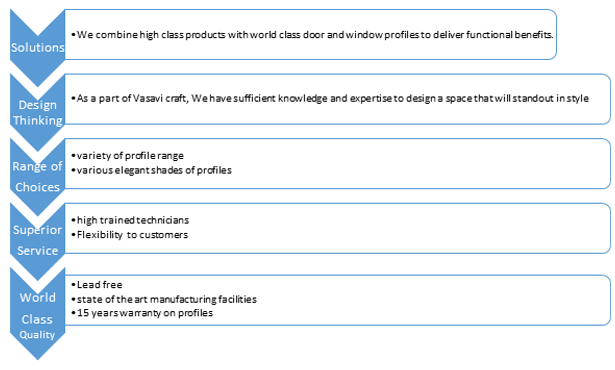
Advantages of uPVC
1. Security
The security of a property or home is paramount to any window or door installation. This is why UPVC exceeds expectations with an ultra-light yet sturdy frame, used in conjunction with various locking combination and a double glazed pane of glass will prevent an intruder from breaking in.
2. Low Maintenance
UPVC is a low maintenance material, unlike natural materials which require annual sanding, varnishing and repainting. Windows & doors made from UPVC can last for decades without any sign of weathering, the only upkeep is a wipe down clean with soapy water to prevent staining and remove grim or dirt.
3. Durability
The material is incredibly tough meaning the frames can cope against the most extreme elements and are not affected by rot and corrosion which is especially advantageous for properties located near the seaside where high salt content can be problematic. The UPVC coating is also protected against ultraviolet (UV) rays which prevent the material from fading in prolonged sun exposure.
4. Eco-Friendly
The average life span of UPVC windows can range between 40-80 years and are made from mostly recyclable materials to sustain minimal long-term impact on the environment.
When replacing old windows and doors made from UPVC ask your installer if they will be disposed of accordingly to ensure are recycled, and the materials can be reused in other products such as pipes, plumbing fittings and more.
5. Soundproofing
The UPVC material works in combination with the double glazed window panels to help decrease the amount of noise that can pass into your home. Most UPVC windows and doors should reduce external noise by up 50% compared traditional counterparts.
6. Fire retardant
The building regulation state that units and frames for windows and doors must be made from fire rated materials preventing external fire spread. UPVC is also a material required by the building regulations to adhere to the fire safety protocol, meaning the material will keep the primary route open for 30 mins in the event of a fire incident.
7. Weather Resistant
Weathering is a common problem amongst most materials used on the exterior of a property. UPVC windows and doors do not react with water and air and are not susceptible to the natural elements, meaning a longer life span without ageing.
While UPVC can stand up to the weather and requires less maintenance than naturally occurring counterpart materials such as wood, we recommend taking regular care of any external UPVC installations including soffits and facets to ensure their longevity.
8. Customisable
Typically most UPVC windows, doors and external facias will come in white. However, developments in the manufacturing process have meant homeowners are no longer limited to not only colour but a series of customisable shapes, styles and imitation effects such as wood grain.
Installation companies and manufacturers can now tailor UPVC products to your desired specifications; meaning windows and doors will outfit perfectly into your home or property.
9. Insulation
Energy efficiency is at the front of everyone mind when it comes to new windows and doors and the choice of materials used will impact the warmth and window energy rating of your home.
UPVC is a low conductor of heat meaning when fitted correctly it will form a closed air system minimising the heat loss, experienced by non-insulating materials.
10. Ventilation
UPVC windows can come in various window style configurations providing an efficient ventilation system with effective airflow into a room. An effective window configuration is called 'tilt and turn' which consists of a two-window arrangement which can open in two separate directions providing draft-free ventilation.
When in the tilted position inwards, hot air can escape through the top and side openings while turning the window to open fully can quickly ventilate the atmosphere of an entire room useful for cleaning or refreshing.